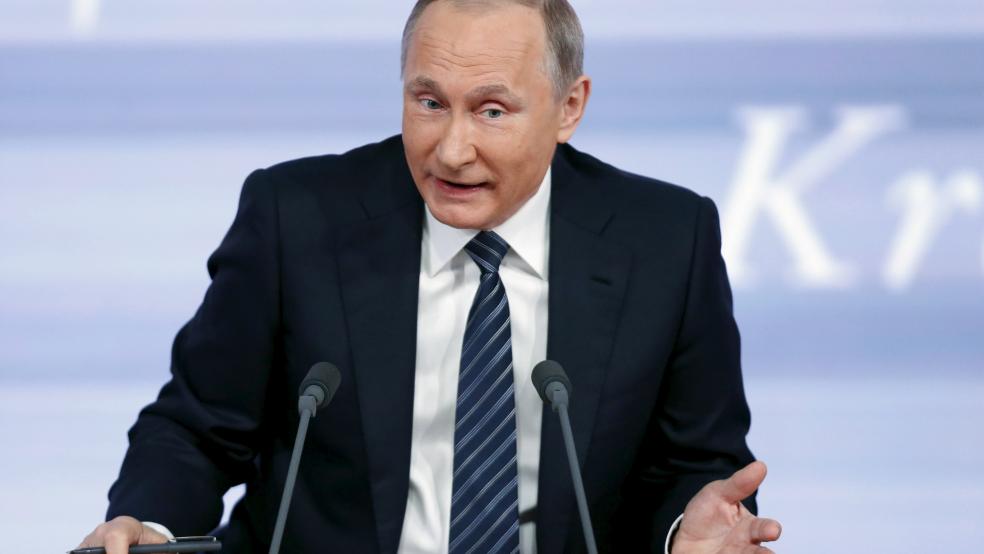Today is the day when Vladimir Putin will find out whether his decision to play a crucial role in the Iran nuclear deal, thereby cementing his role as a key player in international diplomacy, was worth the cost.
A report released over the weekend found that Iran has materially complied with all of the requirements of the agreement the Islamic Republic worked out with the United States and other world powers to dismantle much of its nuclear infrastructure. Nuclear materials have been shipped overseas, out of the reach of any elements within Iran interested in building nuclear weapons. A key reactor’s core was filled with cement, ruining it for any future use.
Related: Iran Sanctions Lifted as Nuclear Infrastructure Is Disabled
The result is that some $150 billion in frozen Iranian funds will be released and, even more importantly, many of the international economic sanctions preventing Iran from fully participating in the global economy will be lifted. And that could be bad news for Putin’s Russia.
There is no questioning the key role that Russia played in the deal getting done. Of all the participants sitting across the table from Iran – the U.S., U.K., Germany, France, Russia, and China – Russia was arguably the most crucial. While Moscow may not carry the same weight militarily or economically as the U.S. and other members of the group, it had the strongest relationship with Tehran, and a degree of trust that others, particularly the U.S., did not.
However, the negotiations commenced long before oil prices began to plummet. Crude oil that sold at more than $100 a barrel a few years ago is now trading below $30, with some analysts suggesting that it might not hit a floor until $20.
That is, to put it mildly, disastrous for the Russian economy, which is hugely dependent on its exports of oil and natural gas.
Related: Is Obama’s ‘Good Day’ with Iran the First of Many?
Now, here comes Iran, loosed onto the international oil markets for the first time in a generation. Iran sits on about 10 percent of the world’s proven oil reserves, and its ability to add more supply to an already-saturated market is more bad news for Russia.
The oil markets, to be sure, have largely priced in the lifting of sanctions on Iran, but what’s not clear is whether the full impact on Russia’s currency, the ruble, has been felt yet. The ruble, which as recently as two years ago traded near 30 to the dollar, is now as weak as it has ever been. It takes 77 rubles to buy one dollar, and the trajectory has been steadily upward since last spring.
The ruble’s tumble has multiple reasons, including international sanctions related to Russia’s invasion of Ukraine, but the impact on Russian citizens is the same regardless of the cause: their buying power has been dramatically reduced.
When international currency markets open on Monday morning in most of the world (U.S. markets will be closed for the Martin Luther King Jr. holiday) many around the world, and in the Kremlin in particular, will be watching to see how much continued weakness in oil prices continues to pressure the ruble and, indirectly, Vladimir Putin.





